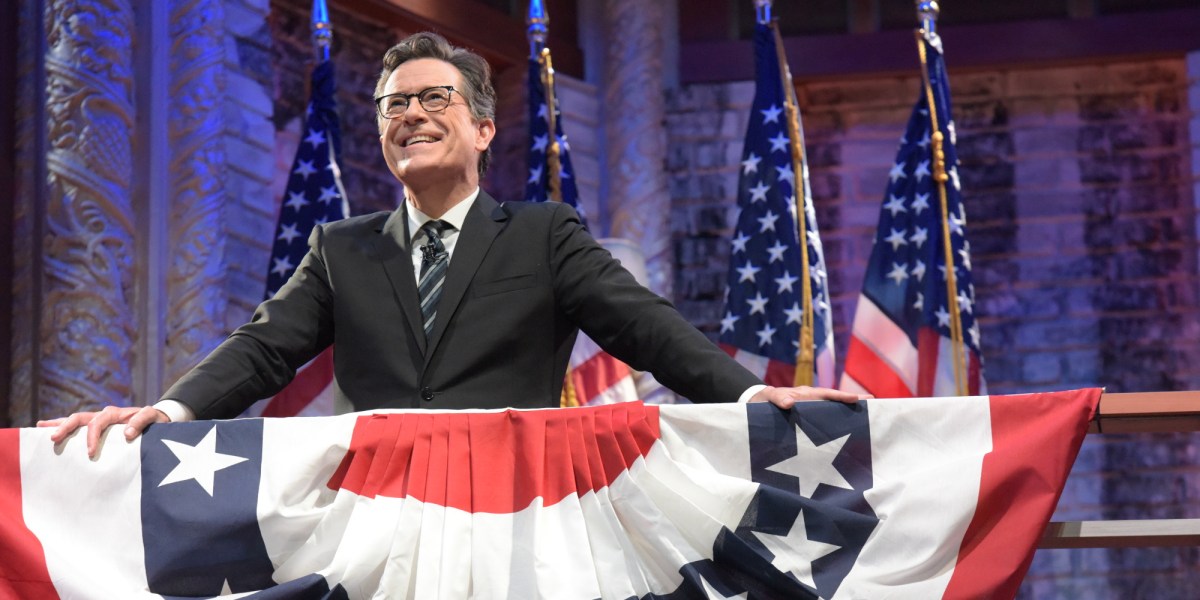Stephen Colbert’s impending departure from “The Late Show” has already reshaped conversations about late-night television’s viability, but the host is now hinting at a creative pivot that could redefine his legacy. In a revealing GQ interview published on November 3, 2025—dubbed his “exit interview” amid the show’s scheduled end in May 2026—Colbert disclosed plans for a potential revival of his iconic right-wing persona from “The Colbert Report.” The fictional conservative pundit, a satirical staple from 2005 to 2014 on Comedy Central, might anchor an entirely new project, blending nostalgia with fresh narrative twists. “It was actually going to involve that old character in a new job, and he would be like a central figure, but he wouldn’t be the only character in it,” Colbert shared, describing a “whole show” concept that expands beyond solo monologues. This tease arrives as CBS cites financial pressures for axing the nine-time ratings leader, fueling speculation on whether the move signals a broader retreat from bold commentary.
The right-wing “Colbert”—a blustery, Bill O’Reilly-inspired blowhard named Stephen T. Colbert D.F.A.—was the cornerstone of “The Colbert Report,” a spin-off from “The Daily Show” that earned 15 Emmys and redefined political satire. Portrayed as a “well-intentioned, poorly informed high-status idiot,” the character parodied cable news bombast, coining terms like “truthiness” in its 2005 premiere to mock gut-driven journalism. Colbert inhabited the role so fully that he brought it to life in books like “I Am America (And So Can You!)” and high-profile events, including a 2006 White House Correspondents’ Dinner roast of George W. Bush that drew standing ovations and backlash in equal measure. The show’s finale in 2014, featuring cameos from luminaries like George Lucas and a symbolic eagle cannon, capped a run of 1,447 episodes that influenced a generation of comics.
Transitioning to CBS in 2015, Colbert shed the persona to host as his “real” self, inheriting David Letterman’s desk and evolving into a progressive voice amid the Trump era. “The Late Show” thrived, averaging 2.5 million viewers last season and clinching Outstanding Talk Series at the 2025 Emmys, but the grind of daily news cycles wore thin. “Putting on the snorkel and getting into the sewer every day,” he quipped in GQ, expressing relief at the cancellation despite its shock—learning via his manager, not executives. Yet the right-wing character’s periodic returns, like a 2025 segment skewering Trump over Jimmy Kimmel’s show hiatus or a 2016 RNC skit, kept the flame alive. Most recently, in September 2025, Colbert resurrected the alter ego for “The Word” to lampoon free-speech tensions, declaring talk hosts “America’s most vulnerable” under political scrutiny.
This revival tease gains layers from the cancellation’s backdrop. Announced in July 2025, the decision followed Colbert’s on-air jab at Paramount’s $16 million settlement of a Trump lawsuit over a “60 Minutes” edit, which he called a “big fat bribe.” Trump crowed online, and while CBS insists the move is “purely financial” amid cord-cutting woes, the timing stoked theories of reprisal. Colbert addressed it candidly: “I can understand why people would have that reaction… No one’s ever going to tell us.” He noted no prior budget warnings, emphasizing his solid CBS ties, but the irony isn’t lost—exiting as the “first number one show to ever get canceled,” per his wry line. Industry peers, from Jon Stewart labeling it “pure cowardice” to David Letterman decrying network “embarrassment,” echoed the unease, with #SaveLateShow trending amid fan campaigns.

Colbert’s evolution underscores the tease’s intrigue. Early roles on “The Dana Carvey Show” and “The Daily Show” honed his correspondent shtick, but “The Colbert Report” catapulted him to stardom, blending absurdity with acuity—satirizing Fox News while topping iTunes charts. Post-2014, he authored children’s books, hosted a Broadway holiday special, and navigated “The Late Show’s” rocky start into dominance, with Trump-era spikes hitting 7 million viewers. Off-screen, the Fordham grad and father of three balances faith and family, crediting improv roots for his adaptability. In a 2024 panel, he reflected on the persona’s limits under Trump: “I could never play that character now,” citing blurred satire lines. Yet 2025’s teases suggest a retool—perhaps a podcast or streaming series, mirroring Stewart’s “Daily Show” return—where the blowhard navigates a “new job,” potentially as a podcaster or advisor in a ensemble format.
The concept hints at timely relevance. Late-night’s decline—plummeting viewership, rising costs from union pacts and live elements—has peers like Jimmy Kimmel eyeing exits. Colbert’s project could thrive digitally, where clips from his old show still rack millions on YouTube. Fans on Reddit speculate wildly: one thread posits the entire “Late Show” run as “ironic leftist disguise,” while another pines for a podcast revival akin to “J. Jonah Jameson.” Pundits like Eric Deggans of NPR praise the character’s potential to “elevate” formats, as in 2016’s RNC stunt renaming the convention “The Hunger Games.” Colbert demurs on details—”The honest answer is, I just want to land this plane”—prioritizing a “graceful” finale with tributes and specials through May 2026.
Broader implications ripple through comedy. The persona’s return could reclaim satire from echo chambers, much like its original takedown of “truthiness” in a post-fact world. As Paramount merges with Skydance, CBS eyes no immediate late-night replacement, pivoting to unscripted fare. Colbert’s hint arrives amid a crowded field: Stewart’s intermittent “Daily Show,” Fallon’s “Tonight Show” pivots, and Kimmel’s ABC holdout. His GQ chat, poolside at Chateau Marmont, blends vulnerability with vision: gratitude for the team, love for the audience, and excitement for uncharted turf. “Every show’s got to end… You got to be a big boy about that,” he said, echoing the character’s bombast with genuine poise.
As speculation builds—will it be HBO, Netflix, or a Substack surprise?—Colbert’s tease reaffirms his chameleon status. From “Strangers with Candy” absurdity to Emmy hauls, he’s mastered reinvention. The right-wing revival isn’t mere nostalgia; it’s a bid to recapture the “impertinence” that made him a Peabody winner, potentially bridging divides in polarized times. With six months left on CBS, the Ed Sullivan Theater hums with anticipation—not just for goodbyes, but hellos to a bow-tied blast from the past, reimagined for tomorrow’s absurdities.


